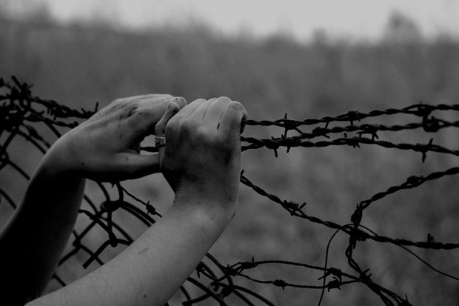I’ve been thinking a lot lately about emotional vulnerability. I wrote about this subject about 15 months ago after I discovered social work researcher Brené Brown. I found her TED talk on the subject terribly compelling.
As I’ve continued to think and read about this, I keep uncovering new things to understand about myself — sometimes things I’m not so happy to discover. I knew that the dysfunctional home in which I grew up left all of us feeling shame and fear, but I seem to keep uncovering new layers of the effects it’s had on the ways I’ve lived my life so far.
Over the weekend, I had an epiphany of sorts when I realized the role that shame and lack of vulnerability played when I lost someone important to me about four years ago. I think I’d sort of already known, but it somehow came together in a very clear way that dropped a load of bricks on my head. Or heart. I’m not sure which.
I didn’t realize this for a long time, but I don’t like to take emotional risks, because I’m afraid of being hurt. If you happened to see the piece I wrote for Mother’s Day last week, you might understand why I have a long-term fear of losing women I love. I’ve understand that piece of the puzzle for years, but I don’t think I’d been clear on the fact that I set myself up to lose someone I wanted badly by not being vulnerable — by pulling back when trusting more was the healthy and loving thing to do.
So here’s what I realized.
When we make ourselves vulnerable to someone we love, we’re risking being hurt badly. The more we love someone, the more power we give to the person, so the common unconscious tendency is to hold back parts of ourselves. If we’re vulnerable with a loved one, that person might hurt us deeply. But if we’re not vulnerable, we’re dooming ourselves to losing the love we want, because love won’t flourish where things are hidden. So being emotionally vulnerable with someone is tremendously risky, but not being vulnerable is a guarantee of losing love — and of emotional isolation and unhappiness which are far worse.
Some of us are really good at building walls and fences — and some of us are good at choosing partners who are going to have just as much trouble being vulnerable as we do. (If you’re scared of being vulnerable, isn’t it a great unconscious defense to choose someone who isn’t going to insist on you opening up, because that person is busy with his or her own issues?)
People sometimes even try to justify the walls they put up. I’m sure you’ve heard variations of the common line of pseudo-wisdom that says, “Sometimes we put up walls not to keep people out, but to see who cares enough to knock them down.”
If you’re putting up walls and fences, it’s your job to bring them down. Nobody else can do it for you. As long as the walls and fences — and various other defenses — are up, you’re going to find excuses to keep someone else out. And you’re going to blame it on the other person. There’s always something wrong with her. (Or with him.)
As long as you’re scared and have your walls up to keep others out, your heart is going to be left suffocating inside those cold and lonely walls. Allowing yourself to take a chance on someone is scary. Trusting enough to give up control can be terrifying for some of us. But the alternative to taking a chance is even worse. I have personal experience with that.
I won’t make that mistake again.

 When we sell Jesus like soap, maybe we’re spiritually bankrupt
When we sell Jesus like soap, maybe we’re spiritually bankrupt Could we stop being disappointed by just understanding each other?
Could we stop being disappointed by just understanding each other?